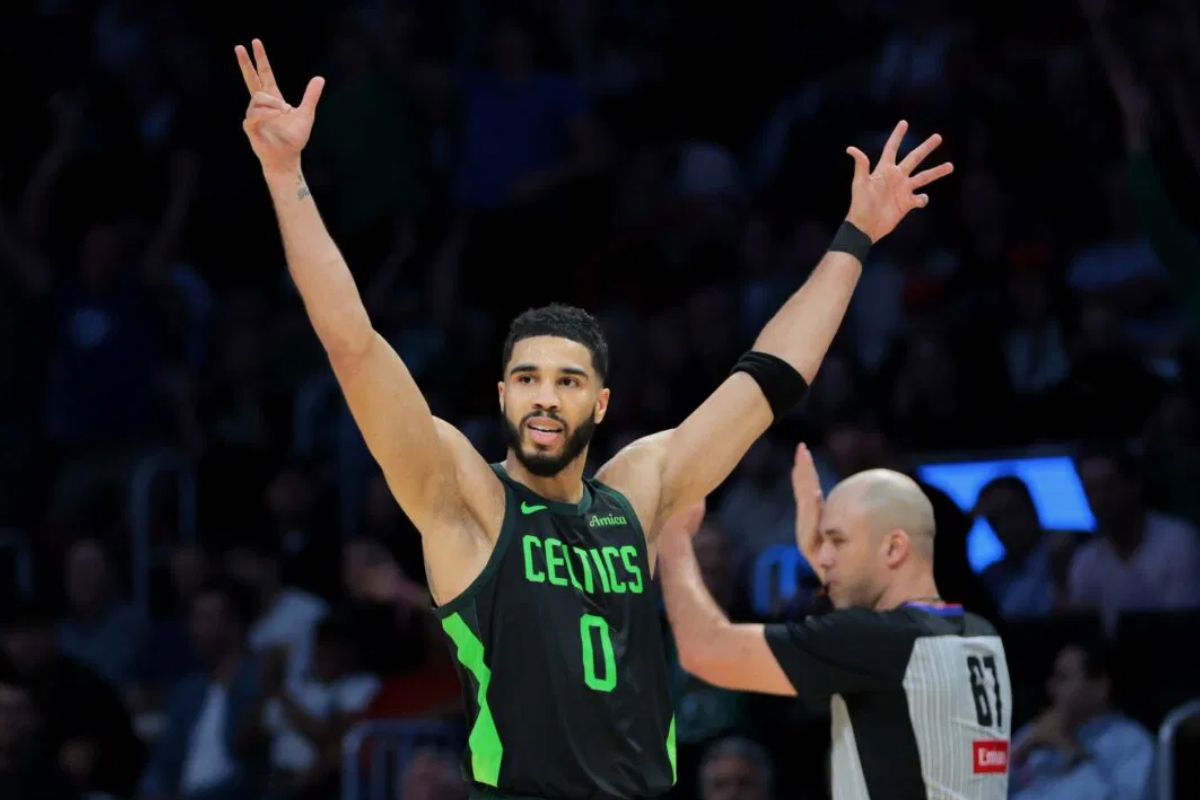
Imago
Image Credits – IMAGN

Imago
Image Credits – IMAGN
The Boston Celtics entered the 2025 playoffs as defending champions, armed with the confidence that comes from years of building around their superstar duo. But all of that changed on May 12, when Jayson Tatum collapsed while diving for a loose ball in Game 4 of the Eastern Conference Semifinals against the Knicks. The diagnosis was devastating: a torn right Achilles tendon, surgery the next day, and a timeline that almost certainly wipes out his 2025–26 season.
Watch What’s Trending Now!
It wasn’t just the end of Boston’s title defense, cut short in six games; it was a seismic jolt to the franchise’s plans. At just 27 years old, Jayson Tatum is supposed to be in the prime of his career, carrying six All-Star nods, four All-NBA First Team honors, and a résumé that already places him among the best of his generation. Yet, with his injury, Boston’s championship window suddenly looks narrower, forcing tough questions about how to build for the future.
The numbers make it even starker. Tatum’s absence comes at a time when Boston is committed to an NBA-high $230.6 million payroll for 2025–26, a figure that soars past the league’s new second apron threshold of $207.8 million. The luxury tax hit alone? A projected $210 million. Without their superstar on the floor, paying that price to keep a roster intact feels less like contending and more like standing still.
ADVERTISEMENT
Enter John Karalis, longtime Celtics observer, who believes the path forward isn’t just about shuffling contracts or hoping for a miracle return from Jayson Tatum, it’s about something deeper. In his view, the Celtics must take an unprecedented step: pouring more money and resources into scouting than at any point in franchise history.
“This scouting is going to be at an absolute premium in this CBA,” Karalis said. “Pro scouts, international scouts, college scouts, you have to have them all. If it was up to me, I would invest more money in the scouting department than has ever been invested in team history. We need to pick up every stone. We cannot miss on anybody.”
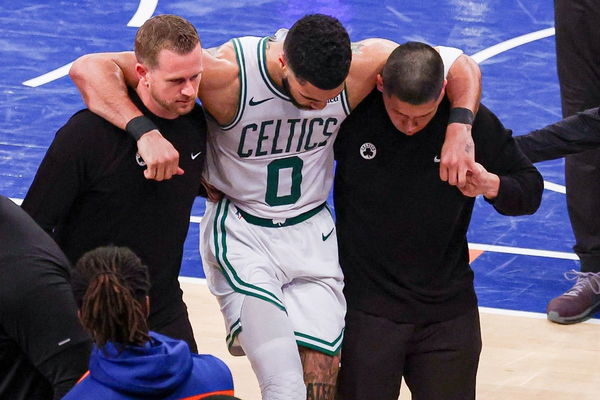
Imago
Image Credits: IMAGN
His vision is nothing short of global. Karalis imagines Celtics scouts embedded in Australia, northern Africa, Europe, and South America, boots on the ground, living there, watching players develop in real time. In a league where second-apron restrictions now limit trades and free-agent signings, he argues, the Celtics’ margin for error is razor-thin. Finding “diamonds in the rough” isn’t just a luxury, it’s survival.
ADVERTISEMENT
Karalis also frames this scouting-first strategy as the antidote to the shrinking Jayson Tatum window. Under the new CBA, trying to stack two or three supermax-level contracts leads to a shorter, harsher title window. Instead, he suggests a different blueprint: one superstar commanding 35% of the cap (Tatum), a secondary star closer to 25% (Jaylen Brown), and then “damn good role players” discovered through world-class scouting.
ADVERTISEMENT
He points to the Indiana Pacers’ 2025 Finals run as the model. With Tyrese Haliburton leading, Pascal Siakam complementing him, and a deep roster of cost-controlled players, Indiana showed how far the right supporting cast can carry you. For Boston, role players like Payton Pritchard, who just won Sixth Man of the Year, averaging 14.3 points per game, highlight what’s possible when you develop talent rather than overspend for it.
The Harsh Realities of the New CBA
Why does scouting carry such weight now? Because the 2023 CBA was designed to stop big spenders like the Celtics in their tracks. Once a team crosses the second apron, its flexibility evaporates. Draft picks get frozen and devalued, contracts can’t be aggregated in trades, and even mid-level free-agent signings are off the table.
ADVERTISEMENT
For Boston, already committed to Jayson Tatum, Jaylen Brown, Derrick White ($28M), and newly acquired Anfernee Simons (~$25M), the math is brutal. Even after trading away Jrue Holiday, Kristaps Porzingis, and Sam Hauser to save money, the Celtics remain $22.8M above the apron with just 12 players under contract. That leaves ownership with a choice: either pay massive tax penalties for a roster without Tatum, or take the kind of bold, forward-thinking step Karalis proposes.
New owner Bill Chisholm, who bought the Celtics for $6.1 billion earlier this year, has already felt the weight of this dilemma. He promised to extend the championship window, but without Jayson Tatum, the 2025–26 season increasingly looks like a transitional year. That doesn’t mean punting on contention forever, far from it. Think of the Golden State Warriors in 2019–20, who absorbed Kevin Durant’s departure and injuries by recalibrating around Steph Curry.
Top Stories
Everyone Notices Caitlin Clark’s Reaction After Reggie Miller’s Viral “Disrespect” on NBC
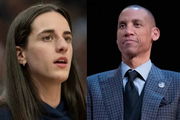
LeBron James Sends Clear Message to Lakers Front Office Ahead of Trade Deadline
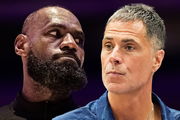
“You’re Gonna Be Fat”: Klay Thompson’s Father Issues Warning Over Marrying Megan Thee Stallion
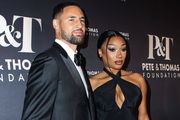
‘White Michael Jordan’ Seeks Bulls Coaching Job Once Billy Donovan Moves On: Report
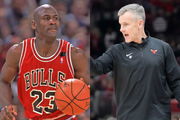
“Caitlin Will Take Care of That”: LeBron James’ Embarrassing Moment Gets No Mercy From NBC Announcers
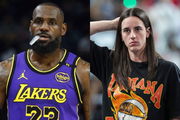
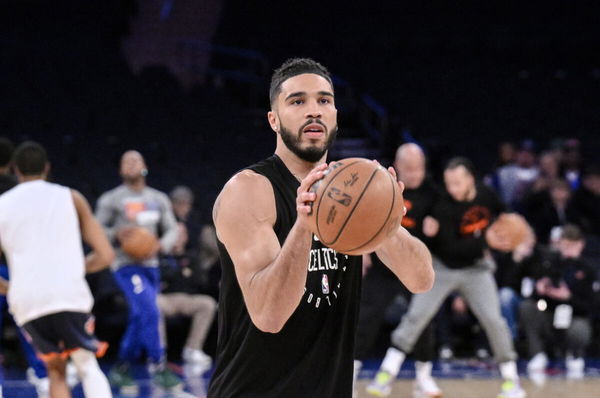
Imago
Apr 8, 2025; New York, New York, USA; Boston Celtics forward Jayson Tatum (0) warms up before a game against the New York Knicks at Madison Square Garden. Mandatory Credit: John Jones-Imagn Images
For Boston, the same logic applies. With Tatum expected back in 2026–27, likely still shy of his 29th birthday, the Celtics can afford to treat this season as a reset. Use it to scout, to develop younger players like RJ Luis Jr., and to identify international talent that can fill gaps at critical positions like center, now vacant with the departures of Porzingis and Al Horford.
ADVERTISEMENT
Of course, Jaylen Brown remains a cornerstone, and Derrick White continues to emerge as one of the league’s premier two-way guards. Brown’s Finals MVP in 2024 cements his role, even if his efficiency dipped last year. White’s $28M deal makes him valuable both on the court and as a stabilizing presence while Tatum recovers. Together, they can keep the Celtics competitive in the East, even if they aren’t outright contenders.
But Karalis’ message is clear: it’s not just about the stars. Without a stronger scouting apparatus, Boston risks wasting prime years of Jayson Tatum and Jaylen Brown while paying record-breaking luxury taxes.
ADVERTISEMENT
The Celtics have always prided themselves on tradition and excellence, but the NBA’s landscape has changed. Parity reigns, six champions in six years, and the punitive CBA ensures that dynasties will be harder than ever to sustain. For Boston, the Achilles tear suffered by Jayson Tatum has brought urgency to the forefront. The window is still there, but it’s shrinking, and the old methods of team-building won’t be enough.
That’s why Karalis’ call for an unprecedented investment in scouting may be the boldest, smartest play the franchise can make. With Tatum sidelined now but poised for a return in 2026–27, the right scouting moves over the next 12 months could be the difference between a wasted era and another banner in the rafters.
The question is simple but weighty: Should Celtics ownership double down on global scouting to extend Jayson Tatum’s title window, or stick with the traditional superstar-heavy model and risk watching that window slam shut?
ADVERTISEMENT
ADVERTISEMENT
ADVERTISEMENT
ADVERTISEMENT